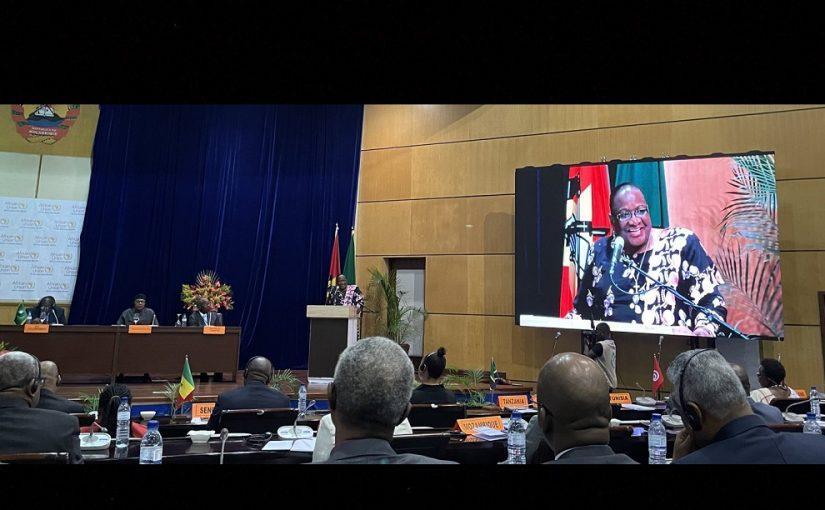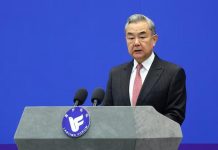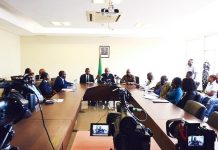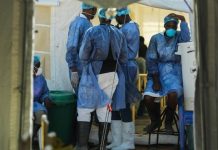Africa-Press – Mozambique. The Minister of Foreign Affairs and Cooperation of Mozambique, Verónica Macamo, has highlighted the example of the country’s disarmament process in the country for the “Silencing the Guns in Africa by 2020” initiative.
“Mozambique’s experience demonstrates that the construction of peace and national reconciliation depends on frank dialogue and the political will of leaders, as well as the involvement of all actors in society,” Minister Macamo said this Monday at the opening ceremony of the ‘Africa Amnesty Month’, promoted by the African Union and intended to promote disarmament on the continent through the surrender and collection of illegally owned weapons.
The initiative was launched in 2017, and this year the official session took place in Maputo, until Tuesday, with the motto ‘Disarmament, Key Opportunity to Silence the Guns in Africa: Lessons from the Republic of Mozambique’.
Last June, Mozambique completed the Disarmament, Demobilization and Reintegration (DDR) process of the Mozambican National Resistance (Renamo, the largest opposition party). Started in 2018, the process covered 5,221 former Renamo guerrillas, of which 257 are women, and concluded with the closure of the Vunduzi base, the last remaining Renamo base, in Gorongosa district, Sofala province.
“It’s true that it gives us pride, but it makes us more responsible, to do more and better for our country, but also for our continent. (…) We are poor, if we always continue with wars, always spending money with weapons, losing our children, we are not going anywhere,” Minister Macamo emphasised in her speech.
“I think the world made a good decision, to come here and learn from Mozambique’s experience, but we will also take the opportunity to hear other experiences, to improve ours,” she said.
She added that the conclusion of the DDR represents “an important contribution to collective efforts for lasting peace, stability and reconciliation among Mozambicans”, but emphasised that the government “remains committed to collecting all types of weapons”.
“Given their improper use, they may constitute a potential threat to peace and security in the country. In this sense, we continue to urge Mozambicans to voluntarily surrender weapons,” she said, praising the involvement of civil society and religious and local leaders for backing the voluntary surrender of weapons.
The Foreign Affairs minister pointed out that the “proliferation of illicit weapons has contributed to the perpetuation of armed conflicts and violence in Africa and beyond”, a phenomenon that “has serious humanitarian consequences and conditions the achievement of the premises enshrined in the Initiative to Silence of Arms in Africa by 2030”.
“The Peace and Security Council of the African Union, by holding this ceremony in Maputo, praises Mozambique’s contribution to achieving the continental vision on Silencing the Guns, one of the main pillars in building the Africa we want for present and future generations. It is indeed a sovereign moment for deep reflection,” she also highlighted.
Mozambique’s recent history has been marked by periods of armed conflict, namely the 16-year war and the recently ended political-military tension.
With the signing of the General Peace Agreement between the Government and Renamo in 1992, the United Nations, through its Mission (ONUMOZ), began the process of decommissioning illicit weapons.
Mozambique is currently a non-permanent member of the United Nations Security Council.
“We reaffirm the commitment of the Government of the Republic of Mozambique to continue contributing to the African Union’s efforts to Silencing the Guns in Africa by 2030”, Macamo concluded.
For More News And Analysis About Mozambique Follow Africa-Press






